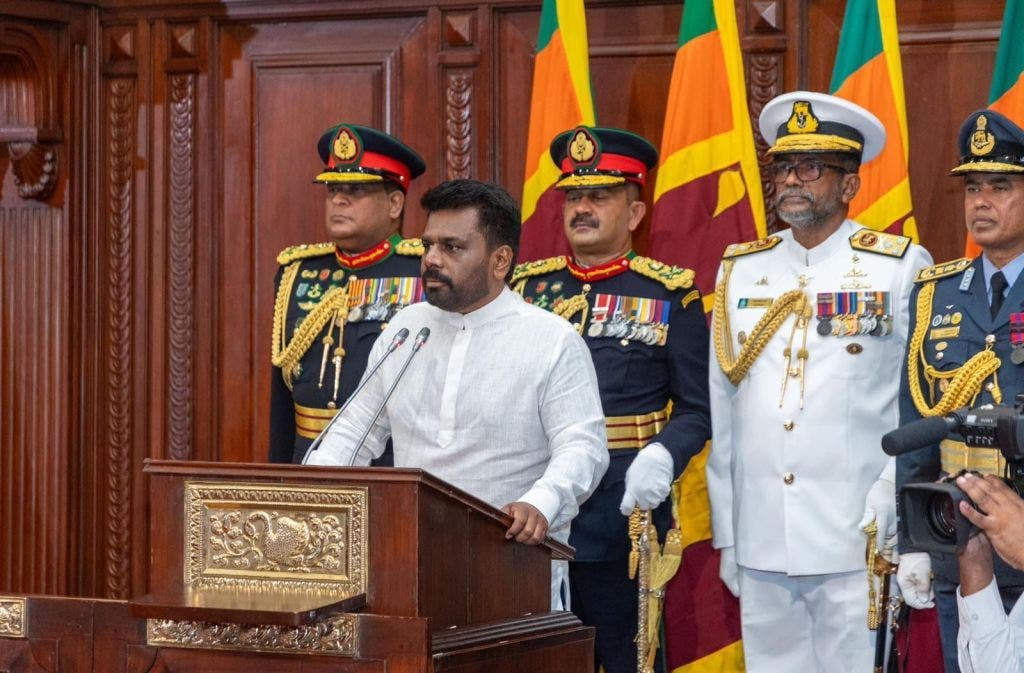Anura Kumara Dissanayake, a Marxist politician, has officially become the president of Sri Lanka, defeating President Ranil Wickremesinghe. Dissanayake’s party, the People’s Liberation Front, has a history of launching armed insurrections. The new leader acknowledged the challenges the country faces during his swearing-in ceremony and expressed his belief that no single party or individual can resolve the deep crisis. Chinese President Xi Jinping congratulated Dissanayake on his victory, expressing hope for continued cooperation between the two countries. Both the U.S. and India also congratulated the new president.
Many voters in Sri Lanka, a country with a population of 22 million, felt disgruntled with the political culture as the nation slowly emerges from an economic crisis. The country is a Buddhist majority nation located to the south of India. In 2022, inflation rose as high as 70% due to a severe shortage of dollars, but it has since cooled. The nation’s GDP is expected to grow for the first time in three years. Dissanayake’s inauguration marks the first standard transfer of power in Sri Lanka since 2022, when rioters forced then-President Gotabaya Rajapaksa to resign and flee the country, leading to Wickremesinghe taking over.
Dissanayake’s first major challenge as president will be fulfilling his campaign promise to ease austerity measures imposed by his predecessor under a relief agreement with the International Monetary Fund, which is Sri Lanka’s largest creditor. The nation has been struggling financially, and the new leader will need to take action to address the economic crisis. China’s Belt and Road Initiative has faced corruption and political backlash, adding to the challenges faced by Sri Lanka and its new president. Despite these difficulties, there is a sense of hope that Dissanayake’s leadership will bring positive change and progress to the country.
Overall, Dissanayake’s presidency has garnered attention both domestically and internationally, with leaders from China, the United States, and India congratulating him on his victory. The new president’s affiliation with a Marxist party has raised questions about the direction he will take the country in, particularly in terms of economic policies. However, there is optimism that his leadership will bring stability and progress to Sri Lanka, which has been grappling with political and economic challenges. As Dissanayake assumes office, the nation will be closely watching how he addresses the pressing issues facing the country and leads it towards a brighter future.


